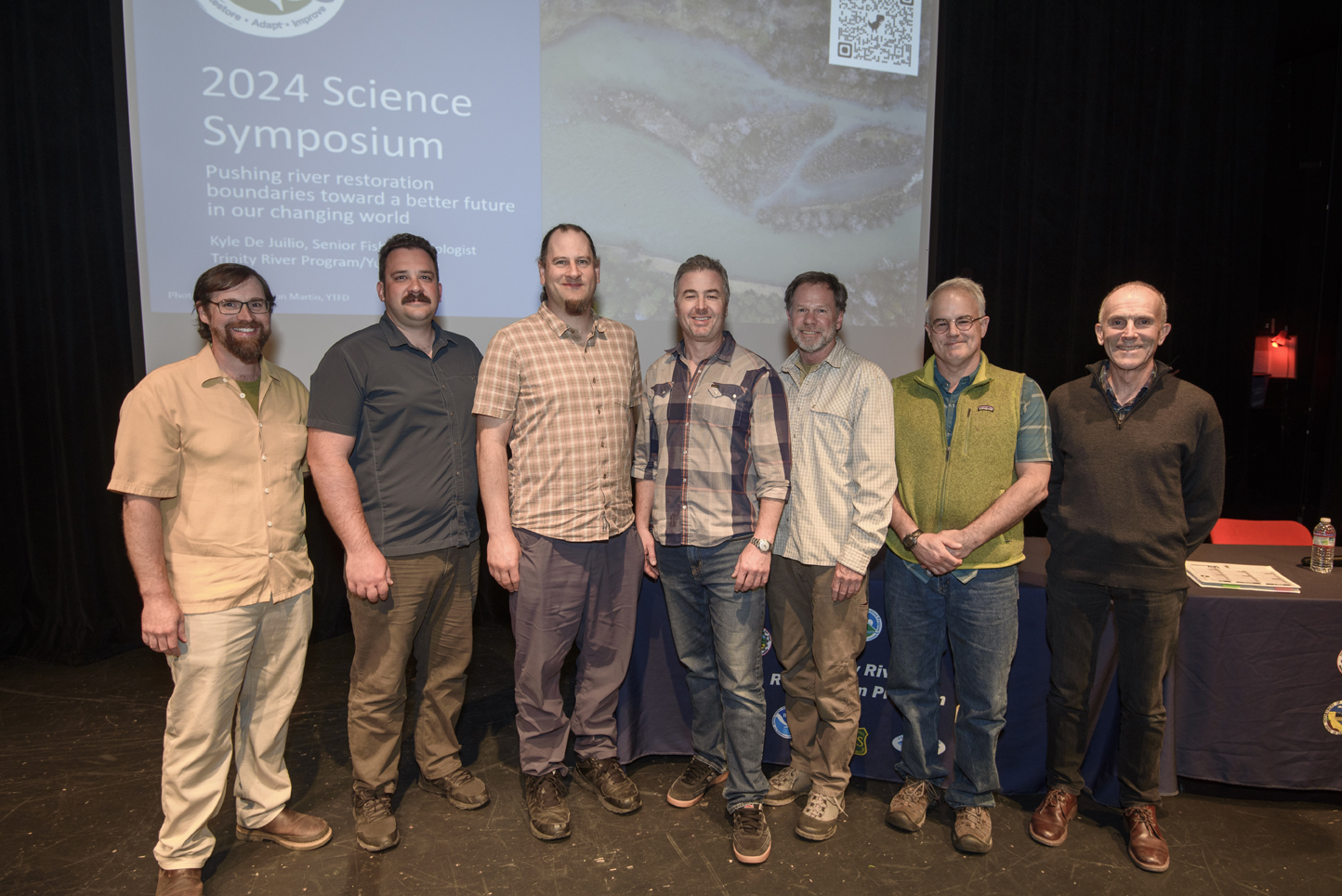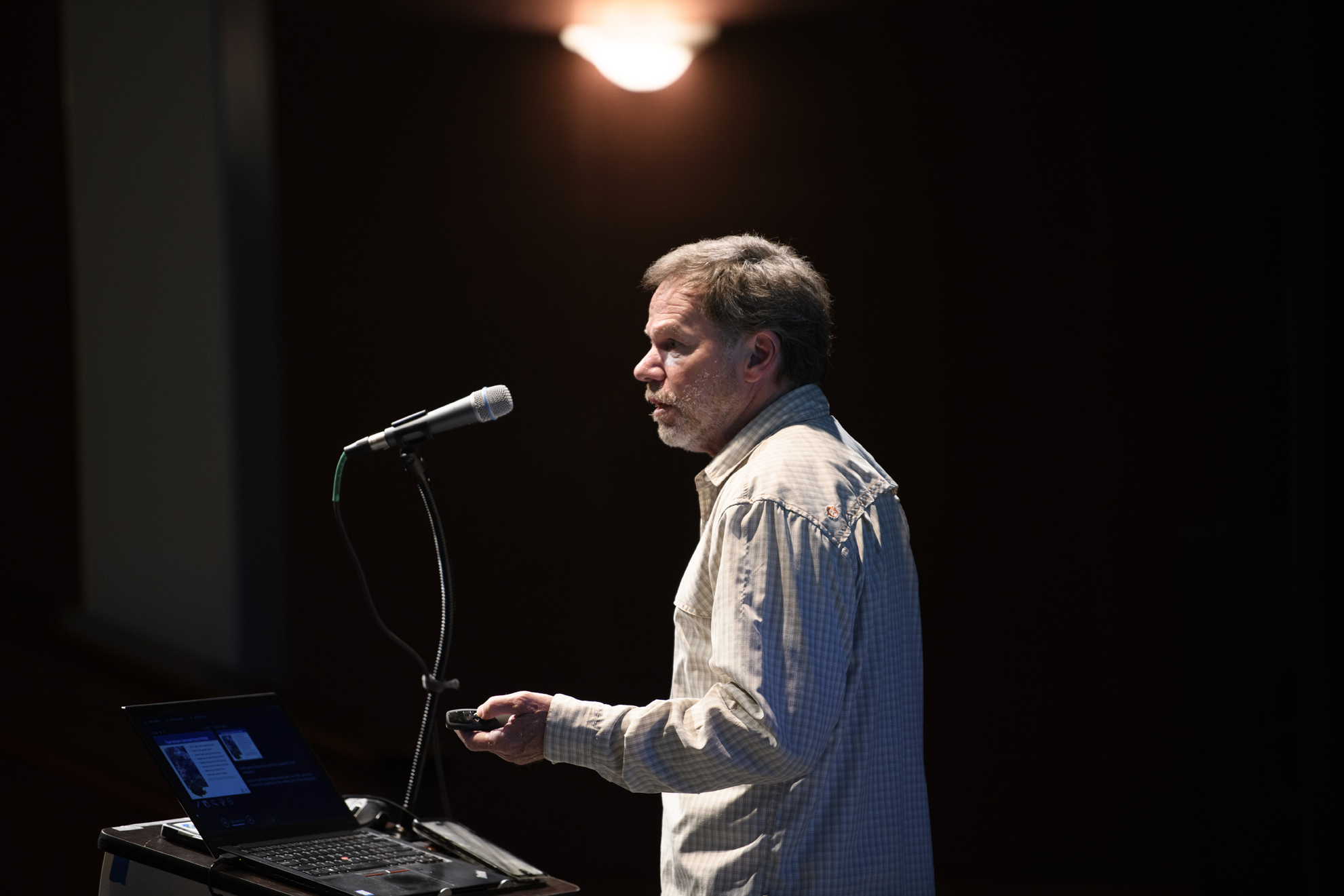
Day two of the 2024 Trinity River Restoration Program Science Symposium was intended to explore the function of the Trinity River and other lotic (rapidly moving fresh water) systems. With an emphasis on creating a common understanding that can be applied to management in the future. Much has been learned in the relatively young field of river restoration over the last few decades, and leveraging that learning is critical to successful restoration in our watershed and others.
The day started with new TRRP Science Advisory Board member and world renowned researcher, John Hayes, Ph.D.. Dr. Hayes presented on his work with salmonids in New Zealand to describe their flow requirements through numerical modeling of drifting macroinvertebrates and drift foraging behavior. These innovations have changed the way managers think about the effects of flow management on salmonid populations.
We had additional talks on temperature and thermal diversity from Eli Asarian (Riverbend Sciences) Klamath Basin water temperature expert along with Todd Buxton, Ph.D. (TRRP) a physical scientist and an accomplished fisheries researcher. We heard from regional reptile and amphibian expert, Don Ashton (McBain and associates) about the decades of research on the Trinity River and the impacts that flow management have had on these important indicator species of ecosystem health.

Finally, we heard from Seth Naman, currently with NOAA Fisheries and long time Klamath Basin Fisheries researcher, and Derek Rupert, currently with Reclamation and former USFWS Fisheries Biologist on the Trinity River, about 2 proposed methods to manage flow releases year-round on the Trinity River and Clear Creek respectively. These proposed methods rely on seasonal and annual patterns of run-off to restore the functionality of the river to that which the species evolved with to ensure reproductive success and productivity.
Together this suite of talks described our current understanding of how cold-blooded species feed and behaviorally regulate their body temperature in regulated and unregulated rivers. As well as the known and suspected impacts of flow and temperature management and proposed methods to reduce impacts and improved function of the environments we seek to restore.
The panel discussion at the day’s conclusion was moderated by SAB member and Fisheries Researcher from Canada, Andy Paul, Ph.D.. The conversation was stimulating and informative and can be viewed in its entirety by clicking the YouTube link below. The direct communication between SAB members, scientists within the Program, managers, and the public is critical to moving management forward together to benefit the resource for all.
Presentation videos are being edited to include presenter slides – we will be uploading them to the 2024 Science Symposium page as they become available. For a list of power point presentations, please click here.
